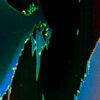PR: ‘On Begging’ recounts your going undercover to investigate life as a panhandler in London. Can you tell us a little about your time spent on the streets, and the biggest surprise that awaited you?
AOH: It was the 1990s. We’d had over a dozen years of Tory rule in Britain and a kind of spite had entered the culture, spite about poor people. We are a welfare state, but something happened in the eighties – money happened, and then it happened even more in the nineties – and a great many of the people who weren’t in the frame for doing well economically just dropped out altogether. It was like the 1930s. The poor became sort of hated and the least capable, the sick ones, the mad ones, were decanted onto the streets by strapped local welfare providers. So I moved among these people for a time and the surprise was really their resignation. They behaved as if this was how society now worked. They saw themselves as by-products of a system that couldn’t enrich everybody. And there was no politics to help them. There really wasn’t: Tony Blair was in some senses worse than Thatcher.
Is this ‘gonzo journalism’, or employing a disguise for the sake of getting the story? I’m curious, also, about whether or not anyone (passerby or fellow-panhandler) ever caught on to what you were doing – if the ‘fourth wall’ was ever perforated.
I was so young, and, you know, the thing about being twenty-four is that you needn’t make much effort to look like a hobo. And you’re closer to the ground somehow at that age, especially if you grew up in a world where people didn’t have any money. I drank in a certain way then and I found that I just kind of blended in under Waterloo Bridge. My main objective was to see if the Daily Mail’s contention that these homeless people were making £80,000 a year begging was true. And of course it wasn’t true. Those people were dying out there.
In the essay ‘After Hurricane Katrina’ you’re more ghosted, almost invisible, as you squeeze into a pickup truck with a pair of rednecks on their way to help storm victims in New Orleans. The essay reads like a short story packed with rich characters and vivid dialogue. Surely you had to write yourself out of that one. I kept imagining Sam and Terry’s reactions to you amidst their rolling commentary on the surroundings.
I did have to write myself out, yes, and I used the best examples to teach me how to do that. Truman Capote is nowhere in In Cold Blood, except, of course, that his mind is everywhere. My editors at the time wanted me to be in the story; it was clear the story would have been made more bearable to them if I was there, explaining things. But there are times, as a writer, when it is more important to create something that causes the reader to search for the explanations in themselves. That’s a sort of moral decision and reporters have to make it, now and then, just as novelists or playwrights do. By that point in my career, ten years on from ‘On Begging’, I’d come to feel that a lot of journalism was in danger of becoming ‘celebrity writing’, in the sense that the writer and his conscience could become the story. But the Katrina story needed to witness something bigger than my own liberal outrage. So I made that decision. To some people, even now, I was somehow letting Sam and Terry get away with something by not admonishing them in print.
You write about America’s appetite for pop icons with a precision and a wonderfully dry sense of humor I find unmatched in contemporary journalism. There are pieces in The Atlantic Ocean about Marilyn Monroe (and our obsession with her), Andy Warhol (and his obsession with celebrity), Lee Harvey Oswald (and the JFK conspiracy theorists who obsess over how many triggers were pulled in Dealey Plaza). You’ve also written an utterly charming and very literary (as in, not cute) novel about Marilyn Monroe, told from the point of view of the dog Frank Sinatra gave to her. Do you share the pop icon appetite, or is it more a matter of having your gaze drawn to a road accident and finding yourself unable to look away?
I grew up with George Orwell and Don DeLillo, two writers fascinated, we might say, by the ethics of populism. There’s a certain aura around collective belief and fandom – whether you’re talking about boys’ magazines or mass sporting events or conspiracy theories – that constitutes a whole new subject for people living, as we do, in the era of celebrity. What we’re talking about is a wholesale change in what reality means and a new predicament for people who care about human values. Each of my books has been propelled by a question about the relationship between idealism and reality. My work has mainly been domestic, in the sense that it wants to see the heart of the family and the heart of the individual, but the way society organizes and exploits belief is always pressing in on things for me. As a writer, you can set out to rediscover the humanity in things, give some of it back, and that, for instance, was what I wanted to do with Marilyn. Every book and every film seemed to take her away from herself, and I liked the notion, the technical notion, that a dog might restate her humanness. Plus: you’ve got to hold onto the hope of writing something delightful.
The essay ‘England and the Beatles’ is as much about the phenomenon of the Beatles coming to America as it is about the nation that produced them. How do you think the Beatles managed to reach across an ocean – and across generations – and impress everyone, it seems, but George W. Bush? And can you elaborate on your love for The White Album and your claim that the Beatles, as a group, ‘truly inhabited their own ambivalence’?
That’s a lot of questions. But they are potent questions for people born in the 20th century, potent, perhaps, in the same way that 19th century people who liked novels might have been excited about the Reform Bill or the birth of the railway. We – our ancestors and us – share an instinct for developments that change the shape of our lives and reveal something new about our minds. So the global success of this quartet of Scouse lads is one of the things that makes our world. You can see it happening during that big concert of theirs in Shea Stadium: you can’t hear the music, they are playing really badly, but it is a new world. And why? Because the people are really really screaming. And then you realize that The Beatles are among the cold war anthem-makers: they reveal the sound of America echoing back at itself across the Atlantic. They animate some new aspect of common desire. The White Album is the best album because it makes a kind of sublime symphony of all that culture and all those politics. And I doubt if they realized it. John Lennon might’ve, I suppose.
In ‘Good Fibs’, you call Truman Capote’s In Cold Blood ‘a moral artifact’ and ‘a work of beautiful invention’. That might sound like high praise if you hadn’t, just one page earlier, said that Capote ‘left behind the truth when he stopped writing his novels’. Do you think Capote damaged the future of non-fiction – even temporarily – in the way he went about writing his masterpiece, or the books that followed it?
Oh, I don’t know. The truth. It’s been so corrupted by news organizations that I find it hard to get excited about the possibility that Truman made a few things up. He certainly penetrated the culture he was writing about, and that’s all I care about. The point I was trying to make is that fiction harbours its own veracity, whereas reporting, well, it’s reliant on something out there in the world that is not clearly truthful. Of course good reporters get to the truth, but they have to climb over a whole lot of bullshit to get there, and not all of them make it.
‘Racing Against Reality’ examines how everyone’s having instant visual access to world events changes the way we write about those events immediately after the fact. This seems to be truer for journalists than for novelists. You say of 9/11, for example: ‘Actuality showed its own naked art that day.’ Can you tell us about what might be called ‘the failure of metaphors’ when journalists attempt to describe footage of events we’ve all recently witnessed?
Let’s stick with your example, 9/11. There wasn’t a novelist on the planet, and not a reporter either, who could compete with the sheer spectacular horror of what we saw. Every writer who tried to make words illuminate it only made it duller. And I’m talking good writers. For John Updike, Tower One coming down was like an elevator descending at speed. (No it wasn’t.) For Martin Amis, if I remember correctly, the entry of the second plane was like someone posting an envelope. (No it wasn’t.) We saw for ourselves exactly what it was like, and it was an event beyond the power of current language to describe it. There are many events in the world like that, but we don’t see them, and if we did, our language would fail us in the same way. The journalists were stymied, too. There wasn’t an exclusive they could get that could match the 911 calls that were coming from inside the towers. And they were public. It was a sobering day indeed for the power of the word.
How is a journalist to compensate, in such a situation? By avoiding metaphors altogether? By stripping language down to its bare bones?
It was a day for the essayists. And not enough of them were on duty that year to enrich our petrification. There was a time, just to stick with New York itself, when an entire generation of essayists were available, brilliant and deeply connected to the relationship between culture and politics. If those towers had been brought down in, say, 1956, can you imagine the difference in the writing about it? I’m talking essayists burrowing down into the psychic basement of the thing, not relenting until the fears, the complicities, the truths, the lessons, had been exposed. But in 1956 you had that culture of the essay and you had, in their prime, Mary McCarthy, Norman Mailer, James Baldwin, William Styron, Elizabeth Hardwick, Lionel Trilling, Alfred Kazin, Saul Bellow and a dozen more. It wasn’t just about having the personnel, though, those essayists had the reach, they had the balls, and – most important of all – they had the audience.
The earliest-written piece in The Atlantic Ocean, ‘The Killing of James Bulger’, springboards from the ghastly murder of a two-year-old boy in Liverpool to the nature of cruelty. Bullying has come to the forefront in the American press over the past few years, as the number of teen suicides has risen (and as social media has made the backtracking of such cases available to the public). Given the experiences you recount from your own childhood, do you think the potential for bullying and outright cruelty exists in us all from a young age? Should we view a case like James Bulger’s as something much more disturbing than an aberration?
Well, I always thought so. It’s still a great shibboleth: the innocence of childhood. But I don’t think children are innocent: I think they are narcissistic and quite often cruel. Go to any playground and you’ll see what I mean. That essay I wrote was pretty simple – it was the reaction that was complex. As societies, we simply can’t bear the notion that children are capable of terrible things. It offends our sense of the natural order of life. But most adults are less likely to hit you than a child is, if left to his or her own little devices. Most children grow out of it, of course, but that’s just it, they have an ‘it’ to grow out of.
An afternoon on the Glasgow Sludge Boat: Bagged corned beef sandwiches, Tunnock’s teacakes, a view of Greenock off the bow. You can have any three people mentioned in The Atlantic Ocean with you; who would they be?
O jeez, that’s hard. OK, I’ll have Norman Mailer because I once promised him I’d show him Scotland. I’ll have Marilyn, because Norman always wanted to meet her, and I think, moreover, she would’ve taken heart from those old ladies of Clydebank, who overcame every kind of adversity in order to be the women they were. And I’d have George Baroli, the old, drunk, homeless guy who sat beside me on the park bench in ‘On Begging’, the first long-form piece I ever wrote. George must be dead now, and so are the others, but I feel sure he would enjoy our day out on the ship of ghosts. He would like the Clyde in the middle of the afternoon and that great sense of a community that really cares for him.
The Atlantic Ocean: Essays on Britain and America by Andrew O’Hagan is published by Mariner in the US and Faber and Faber in the UK.
Photograph by PalFest








